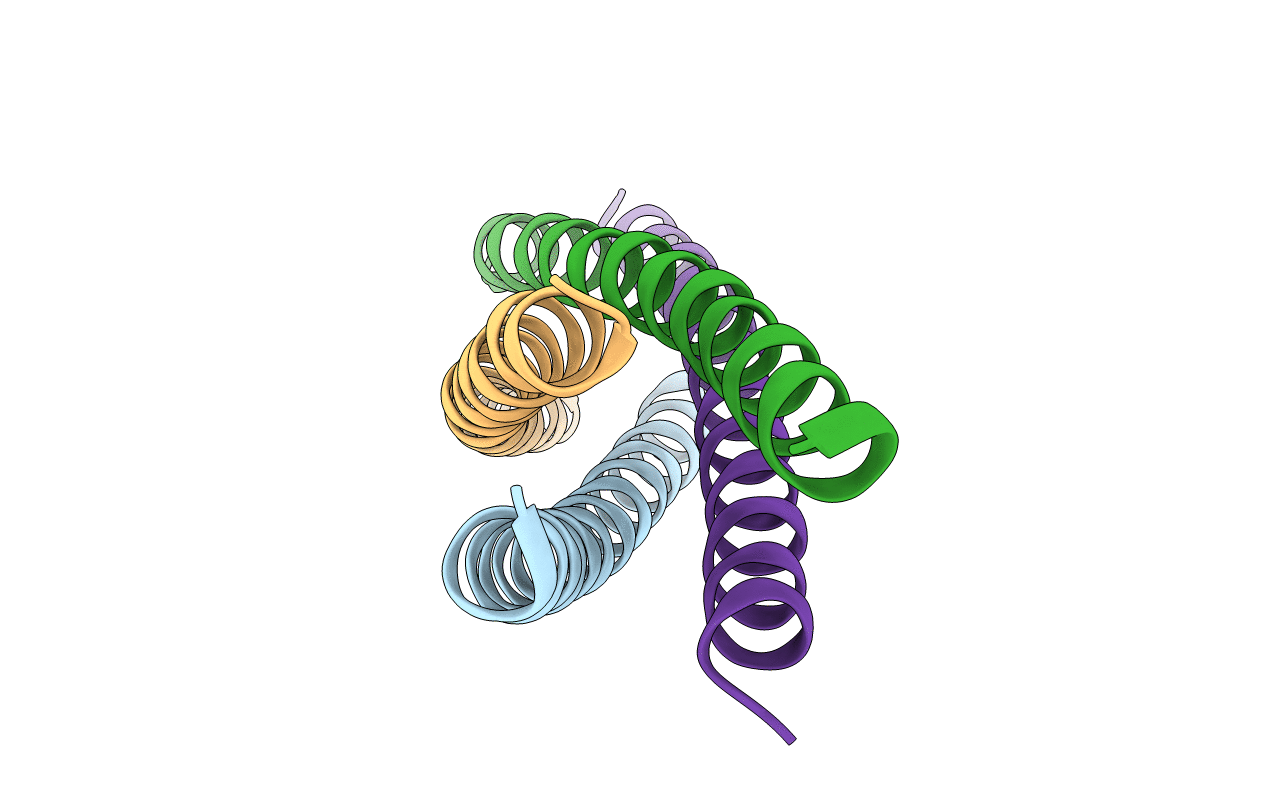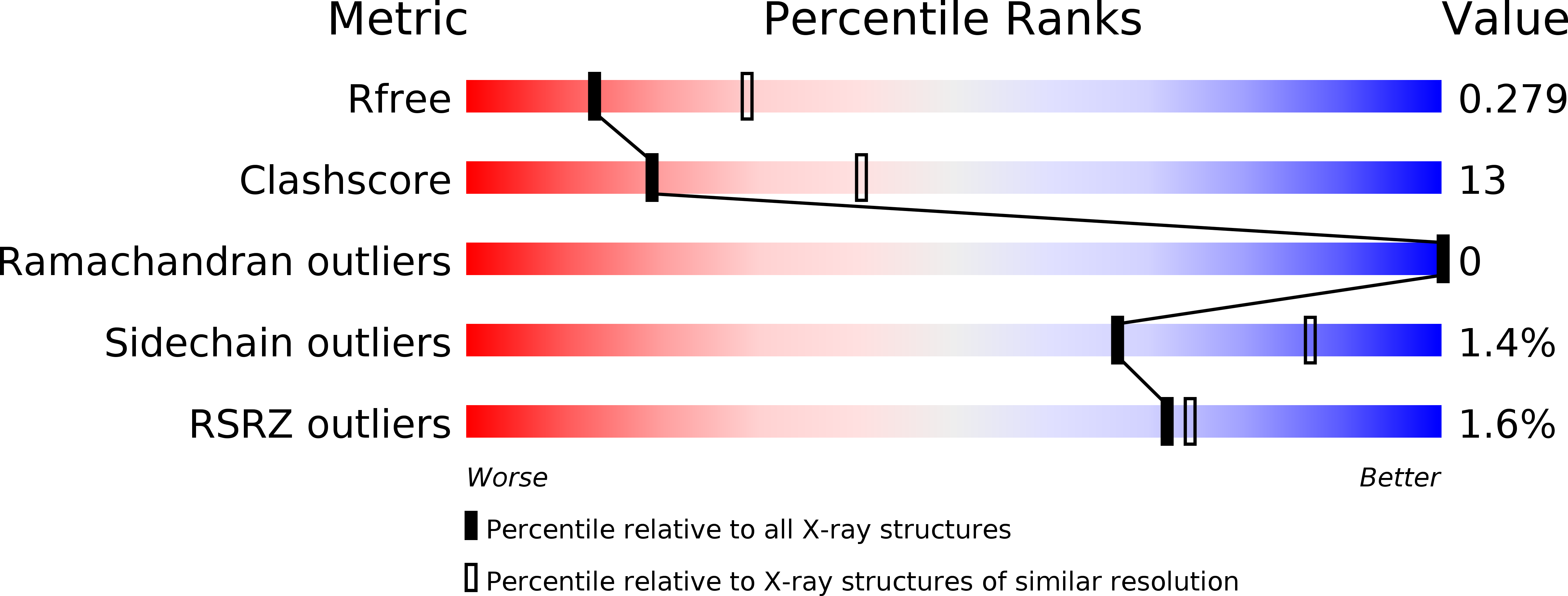
Deposition Date
2017-07-25
Release Date
2018-03-14
Last Version Date
2024-03-27
Entry Detail
PDB ID:
5Y2E
Keywords:
Title:
Crystal structure of the oligomerization domain of NSP4 from the rotavirus strain NCDV
Biological Source:
Source Organism(s):
Expression System(s):
Method Details:
Experimental Method:
Resolution:
2.70 Å
R-Value Free:
0.27
R-Value Work:
0.23
R-Value Observed:
0.23
Space Group:
P 21 21 21


